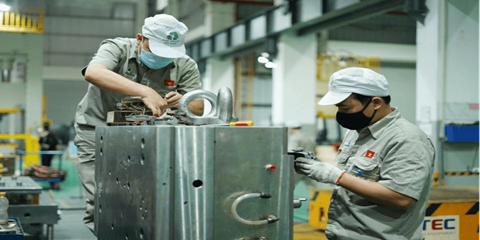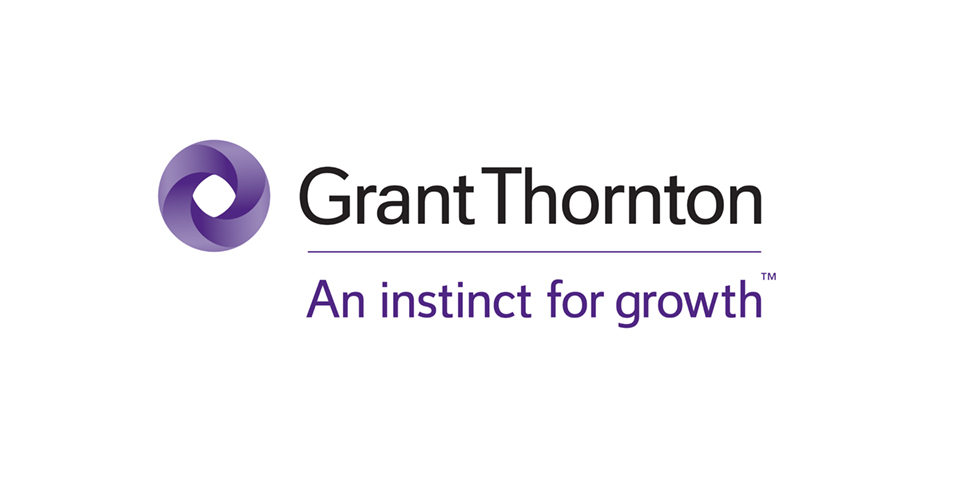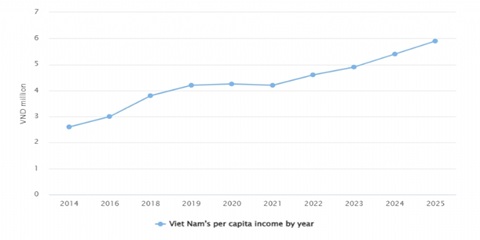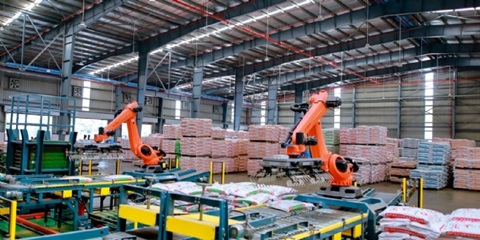Want to be in the loop?
subscribe to
our notification
Business News
HIGH-TECH PERSONNEL TO DRIVE COMPETITION
Vietnam is advancing new mechanisms and incentives to strengthen workforce quality as part of a strategy to engage high-tech investment and enhance its economic competitiveness.
The government announced at a recent National Assembly (NA) session that it would increase investments in education and training quality in the next few months.
“New programmes will be launched to drive human resources development, especially in high-quality personnel for priority and emerging sectors, including semiconductors, AI, and cloud computing,” a government report submitted to the NA stated. “Investments will also go towards expanding science, technology, innovation, and entrepreneurship.”
Under this plan, the government will synchronously implement mechanisms, policies, and solutions for related development, particularly in high-tech sectors.
The government has committed to delivering breakthrough reforms, focusing on modernising vocational education, increasing staff quality, and enhancing vocational training. This will create the skilled labour necessary for a rapidly evolving market and meet the demands of Vietnam’s industrialisation.
In parallel, the government is also working to improve laws on science, technology, and innovation to meet new socioeconomic requirements. The NA will explore and draft amendments to four key laws covering science and technology, technical standards and regulations, product and commodity quality, and atomic energy.
To attract and effectively use investments in sci-tech, the government plans to encourage enterprises to establish and expand sci-tech development funds.
Minister of Planning and Investment Nguyen Chi Dung said, “These funds will support research, innovation, and technological advancement, particularly through partnerships with universities and research institutions, including joint research labs and technology incubation projects.”
He noted that public-private partnerships in sci-tech fields are also strongly encouraged.
The government’s large focus on further improving personnel quality as a foundation for economic growth is expected to boost high-tech investment and the nation’s overall competitiveness.
With over 38 million unskilled labourers, according to the Ministry of Labour, Invalids, and Social Affairs, Vietnam faces a significant skills gap. This shortage is critical as multinational corporations such as Apple, Dell, Foxconn, Pegatron, Nike, and Adidas increasingly shift their supply chains to Vietnam, recognising it as a promising investment destination.
“However, meeting these companies’ demands for high-quality workers remains one of the most pressing challenges,” Minister Dung said. “At present, collaboration between training institutions and businesses is inconsistent.”
The World Bank has noted that without substantial investments in tertiary education, Vietnam will struggle to supply skilled technical workers in sufficient numbers. A recent World Bank report on Vietnam’s startup ecosystem highlighted this challenge, noting a gap between educational institutions’ perceptions and employer needs.
“While 80 per cent of training institutions believe their graduates are prepared for entry-level positions, fewer than 40 per cent of employers agree, especially regarding positions requiring higher-level skills,” the report stated, referencing Vietnam’s low rank of 127th out of 140 countries in the 2021 Global Competitiveness Index for industry-relevant skills among university graduates.
Industry feedback to the World Bank indicated that while universities produce engineering and programming talent, many graduates lack the hands-on experience needed for emerging tech fields such as biotechnology, nanotechnology, and AI.
Last year, the Vietnamese government adopted key productivity frameworks, focusing on modernising the labour market and accelerating productivity growth to 6.5 per cent annually. The national programme on increasing labour productivity towards 2030 also sets a comprehensive reform agenda across ministries, prioritising productivity as a national goal.
Despite these goals, labour productivity growth was only 3.5 per cent in 2023, falling short of national targets. A lack of incentives for businesses and workers to invest in productivity has contributed to this shortfall, highlighting the need for an ecosystems approach. The International Labour Organization noted that Vietnam must be ready to embrace productivity-boosting factors like Industry 4.0, AI, new business models, and innovative financial instruments.
Source: VIR
Related News

PRACTICAL CONSTRUCTION WORK
At Phuc Vuong, we do not focus on talking about our capabilities. Instead, every project currently under construction serves as the clearest and most direct proof. From site preparation, piling works, and foundation construction to structural works and major items, our technical team remains closely involved on site, monitoring every detail.

INTERNATIONAL ARRIVALS TO PHU QUOC AT RECORD HIGH
On January 17, Phu Quoc International Airport handled 47 international flights in a single day, the highest level since the airport began operations. Earlier, on January 3, the airport had already set a new record with 46 international flights in one day. Notably, the surge was not confined to a few peak days. International arrivals were maintained at a high level throughout January, pointing to a more sustained and stable expansion of the international travel market to the island.

VIETNAM PUTS SCIENCE, TECHNOLOGY AT CENTER OF 2026 GROWTH STRATEGY
Vietnam will make science and technology, innovation and digital transformation the core drivers of economic growth in 2026, under a Government resolution guiding this year’s socio-economic development and budget implementation. The direction is set out in Resolution No. 01 on key tasks and solutions for 2026, reported the Government news website (baochinhphu.vn).

VIETNAM ECONOMIC NEWS INSIGHT & RECAP - DECEMBER 2025
Vietnam closed 2025 with an impressive economic performance, exceeding initial targets and demonstrating the resilience of its growth model. Full-year GDP expanded by 8.02% supported by a combination of government-led stimulus, stable domestic production and consumption, and continued strength in key export sectors amid ongoing external uncertainties.

PER CAPITA INCOME CLIMBS 9.3% IN 2025
Average per capita income in 2025 was estimated at VND5.9 million (approximately US$225) per month, marking a 9.3 percent increase from 2024, according to preliminary findings of the Household Living Standards Survey 2025 conducted by the National Statistics Office (NSO). Part of the income growth stemmed from State payments to public officials and employees who retired or resigned under the restructuring of the political system's organizational apparatus.

INDUSTRY AND TRADE SECTOR MAINTAINING GROWTH MOMENTUM, FORGING SUSTAINABLE DEVELOPMENT
In 2025, Hai Phong City benefited from significant opportunities created by an expanded development space following administrative consolidation, while also facing challenges in maintaining stable and efficient administrative operations and sustaining strong economic growth amid ongoing global volatility. Within this context, the industry and trade sector continued to serve as an important driving force for the city’s overall economic growth.
























